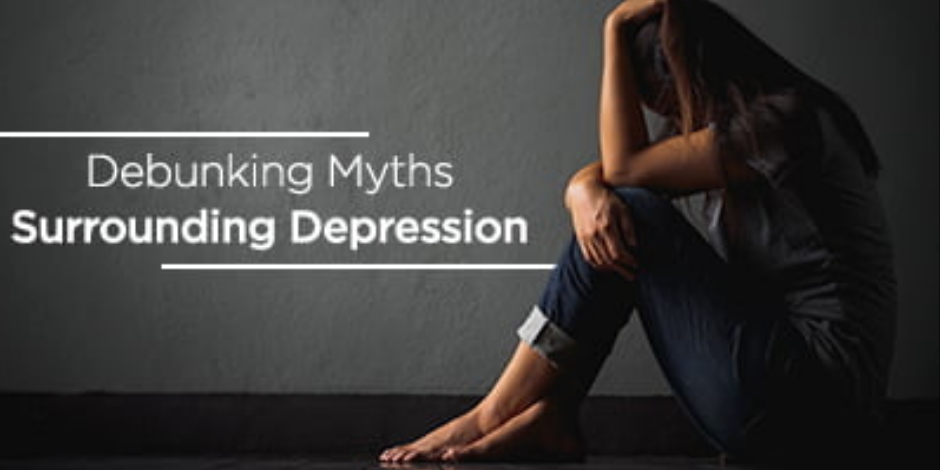What is Depression?
Depression is a complex and prevalent mental health condition that affects millions of people worldwide. Despite its widespread impact, there are many myths surrounding depression that contribute to misunderstandings and stigma. In this blog post, we’ll explore some common myths and unveil the facts about depression, aiming to foster a better understanding of this often misunderstood mental health disorder.
Myth #1: Depression is just sadness.
Fact: While sadness can be a symptom of depression, the condition goes far beyond ordinary feelings of unhappiness. Depression involves a range of emotional, cognitive, and physical symptoms, that impact a person’s ability to function in daily life.
Myth #2: Depression is a sign of weakness.
Fact: Depression is not a sign of weakness or a lack of willpower. It is a complex mental health disorder influenced by biological, genetic, environmental, and psychological factors. Anyone can be affected, and seeking help is a sign of strength.
Myth #3: Depression is a choice.
Fact: Individuals with depression cannot simply choose to be happy or overcome their condition through willpower. Depression is a medical condition that requires proper treatment, just like any other health issue.
Myth #4: Only traumatic events can cause depression.
Fact: While trauma and life stressors can contribute to depression, it can also result from a combination of genetic, biological, environmental, and psychological factors. External events are not the sole cause of depression.
Myth #5: Depression is just a phase, and it will pass on its own.
Fact: Depression is a serious and chronic mental health condition that often requires professional treatment. Ignoring or dismissing it as a passing phase can lead to worsening symptoms and complications.
Myth #6: People with depression can easily “snap out of it” if they try hard enough.
Fact: Overcoming depression is not a matter of trying harder or having a positive attitude. It typically requires a comprehensive approach, including therapy, medication, and lifestyle changes.
Myth #7: Medication is the only effective treatment for depression.
Fact: While medication can be an important component of depression treatment, it is not the only option. Psychotherapy, lifestyle changes, and support from friends and family are also crucial elements of effective depression management.
Myth #8: Depression only affects certain demographics.
Fact: Depression can affect anyone, regardless of age, gender, race, or socioeconomic status. It is a widespread mental health issue that can impact people from all walks of life.
Myth #9: People with depression are always visibly sad.
Fact: Depression can manifest in various ways, and individuals may not always display obvious signs of sadness. Some people with depression may appear fine externally while struggling internally.
Myth #10: Depression is not a real illness.
Fact: Depression is a clinically recognized mental health disorder with well-defined symptoms. It has a biological basis and can have significant consequences for a person’s well-being if left untreated.
Conclusion:
It is crucial to challenge these myths and promote accurate information about depression to reduce stigma and encourage individuals to seek help when needed. Depression is a treatable condition, and by fostering understanding and compassion, we can create a supportive environment for those affected by this mental health challenge. Remember, seeking help is a sign of strength, and there is hope and support available for those navigating the journey of overcoming depression.







